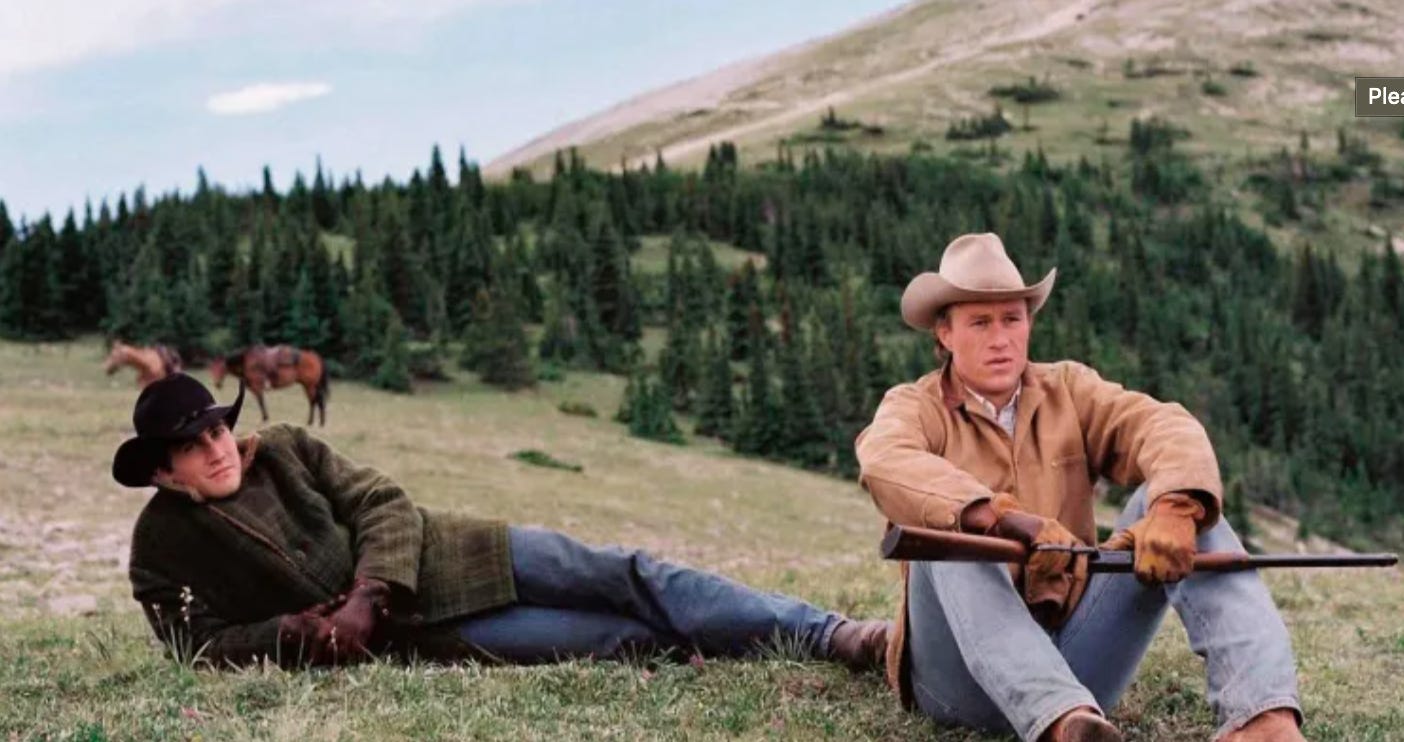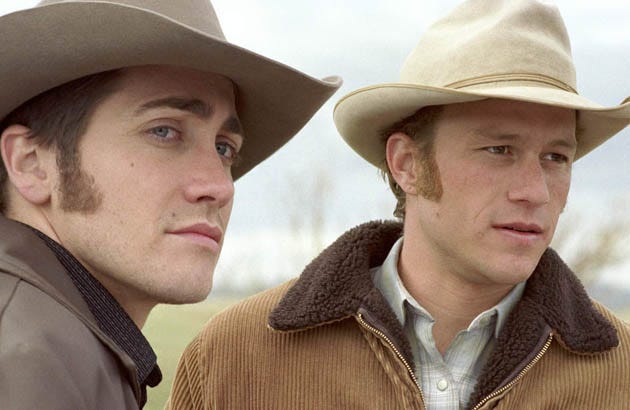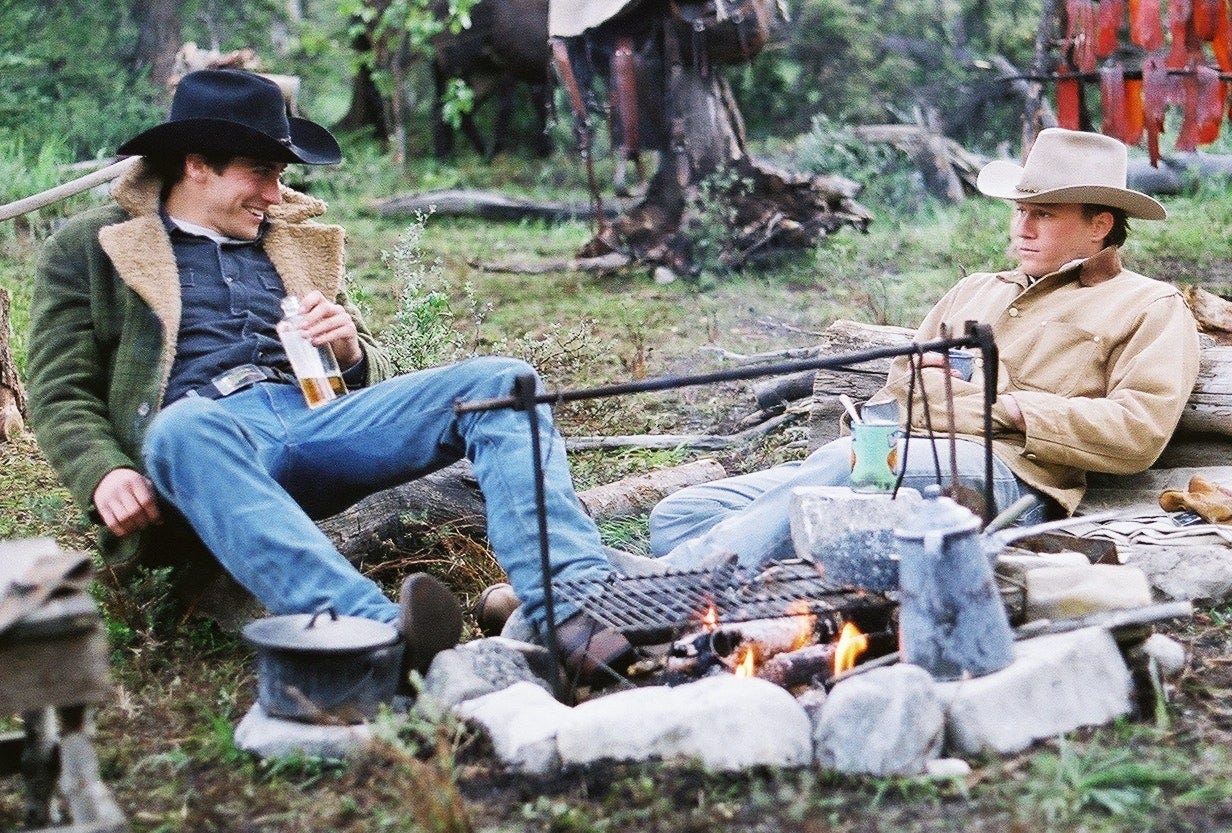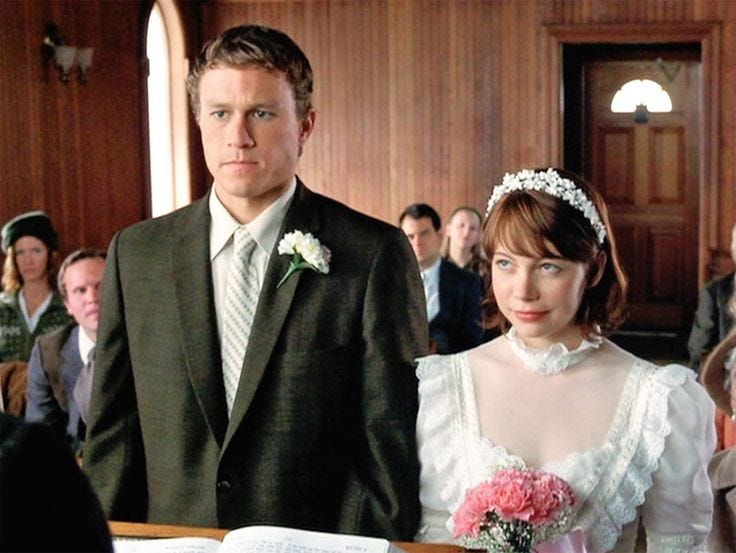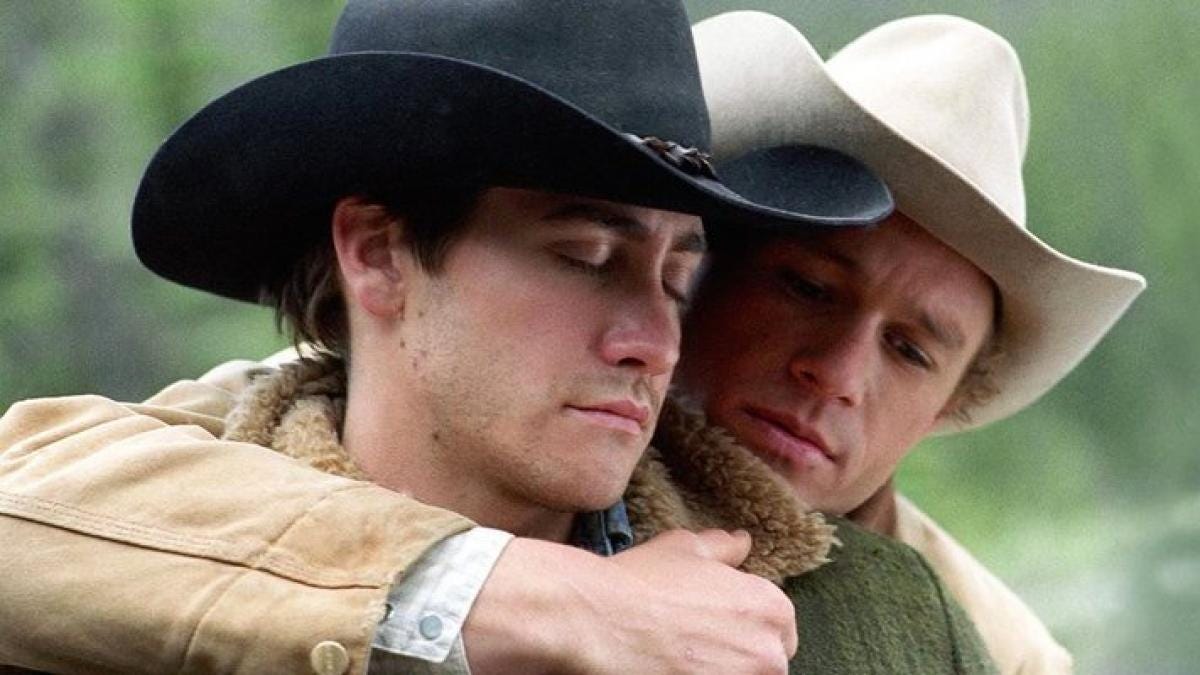Brokeback Mountain (2005)
"I wish I knew how to quit you" Jack Twist laments during an emotionally-charged scene toward the end of Brokeback Mountain (a film that is full of them). It's an iconic line, part of an extended monologue (delivered by Jake Gyllenhaal) at a lake at the foot of the titular mountain, in response to his longtime lover Ennis Del Mar (the late Heath Ledger) admitting that he must postpone their next trip together for a period of months, before parting from him, for what he does not realise is the last time.
There was a time, during its initial release, when I didn't think I could quit this film. Of course, the infatuation began in the preceding weeks, with the extraordinary word out of Venice, and the trailer which promised a cinematic experience of epic proportions. As a closeted 15 year-old, I read the short story by Annie Proulx. I read everything I could. The buzz was significant, the anticipation from audiences palpable. It was the first major motion picture to focus on a same sex relationship.
I saw it opening weekend of course, my adolescent self hungry for gay representation on a grand scale, and the experience did not disappoint. I was entranced by the performances, the cinematography, the score, the power of Larry McMurtry and Diana Ossana's screenplay, masterfully realised by Ang Lee. I would revisit it at home many times, but eventually I moved on. Perhaps because it is such an emotionally demanding experience.
On my last viewing, a fortnight ago, it had probably been well over 10 years since I'd watched it, when it popped up on Netflix. This ephemeral, cynical, cinematically stunted streaming platform, that appears to care not for film history nor to provide anything more than a limited selection displayed on a loop. And yet it offered the chance to revisit this jewel of a film.
One thing that is immediately apparent upon rewatch is the economy of the storytelling. We meet these two young cowboys (shepherds if we're being accurate) as they embark on a summer of tending to sheep on a Wyoming mountain, and we immediately get a sense of the altitude, feel the rhythm of their work, the physicality of it, we are entranced by the pastoral beauty that surrounds them. Their initial attraction is evident just from one look in the parking lot outside the foreman's office. You can scoff at the idea that playing gay requires some kind of bravery for a straight actor, but I do believe Gyllenhaal and Ledger were taking a risk but doing this at a point when they were at the height of their powers (and box office appeal), and their courageous undertaking resulted in an extraordinary screen relationship.
After the tension of their mutual attraction is conveyed, with pointed non-glances, wistful stares into the distance, caring gestures, the two eventually consummate their desires in an abrupt sex scene, in which Jack guides Ennis' hand closer to him in the cold and reveals to him his state of arousal. Afterwards, the tone changes to one of unease, fear. There is even the suggestion that Ennis could kill Jack, as his shotgun appears in the foreground of a shot next to Jack's head. "You know I ain't queer" "It's nobody's business but ours" they assure each other. After that, the nature of their contact becomes more tender, more emotional. However, their time together comes to a close as they finish work for the summer. For Jack's part, there is the hope of something more, perhaps a return the following season, but nothing is certain.
Jack and Ennis say their goodbyes and embark as planned on a heterosexual life apart, fulfilling the roles expected of them. Ennis marries Alma (Michelle Williams at her most devastating) while Jack meets Lureen (a terrific Anne Hathaway). We watch as their responsibilities change and they become emotionally involved with families. That is until a ravenous reunion 4 years later, which begins a life of stolen weekends, trips to the mountains to see each other, always hoping, wishing it could be more.
Incidentally, this cast was stacked, with Anna Faris, David Harbour, Linda Cardellini and Kate Mara all making appearances. They all play a pivotal role in realising this story, and it's not hard to see what attracted them to the project. Ledger in particular display a tremendous commitment to his role. His work immediately placed him amongst the greats of cinema, Brando, Newman etc. His wounded, reserved masculinity is so finely detailed and ultimately gut-wrenching, while Gyllenhaal's emotional vulnerability and goofiness was the perfect counterpoint.
Jack and Ennis are two characters separated by the prejudice of the era and society they are born into. In another time they may not have had to worry and wrestle with their identities, may not have felt the need to involve two unsuspecting women and start families. But their two-decade struggle, fictional as it may be, was making a wider statement. It seemed to say, here is just one story of countless stories of gay people who have had to hide who they are, and the stories of gay people are worthy of being told on a grand scale. It was an event movie. Even the poster for the film was said to have taken direct influence from the poster for Titanic. It's the elegance and ambition with which the movie unfolds that makes it so memorable. There are locations and set-pieces, a level of writing, direction and star power that haven't been seen in a gay-themed film before (or quite frankly, since).
There is also a sense of inevitable tragedy about the story (a tendency of gay themed films that I believe is fully valid, there should be space for sad stories and flawed individuals as well as more uplifting representation). And while other films may have ended soon after the revelation of Jack's death, Brokeback Mountain allows the impact of this loss sink in, reverberate for a series of scenes, as Ennis communicates with Jack's widow Lureen and visits Jack's parents. Weighted silence speaks volumes, as all along the unsaid understanding of Ennis' significance to Jack's life permeates the room. The coda to the film gestures toward the continuation of life, the question of love, as it pertains to Ennis' daughter in her plans to marry. He doesn't wish to see his daughter get hurt or live a lie like he and his wife may have done. Finally he goes to the wardrobe of his trailer, where Jack's shirt from that first summer on Brokeback hangs, and a postcard of the eponymous mountain. "Jack, I swear" he says. If I could do it all over again...
The story still has tremendous impact, it ultimately feels like a testament to the fleeting nature of life and love, the impact that one person may have on our lives. Quite aside from the gay aspect of the story, it speaks to how precious love is. How important it is to be able to live truthfully. What better message can a film have?



